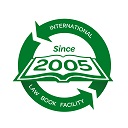As knowledge sharing transcends borders, we highlight three resources for their great strides in putting institutions at the centre of the movement to democratise access to information through providing online resources.
For more information on legal resources available online during the coronavirus (COVID-19) pandemic, see: Access to legal information during the Coronavirus pandemic.
Resources available remotely
GOALI (Global Online Access to Legal Information)
GOALI, one of the five programmes that make up Research4Life, provides free or low-cost online access and training to law and law-related content. Governmental, research and not-for-profit institutions from 115 low- and middle-income countries can access up to 16,000 resources, including e-books and peer-reviewed journals from 70 leading academic publishers, such as Edward Elgar Publishing and Elsevier.
For more information, see: Global Online Access to Legal Information.
EIFL (Electronic Information for Libraries)
EIFL works with libraries and library consortia in 50 developing and transition countries in Africa, Asia and Europe to enable access to knowledge for education, learning, research and sustainable community development. Partners include Edward Elgar Publishing and LexisNexis.
For more information, see: eifl.
Remote Courts Worldwide
Remote Courts Worldwide was launched in 2020 by Richard Susskind, President of the Society for Computers and Law, and technology adviser to the Lord Chief Justice of England and Wales. The website service is designed to help judges, lawyers, court officials, litigants and court technologists share their experiences of remote alternatives to traditional court hearings in light of the coronavirus pandemic. In order to avoid the danger of reinventing the wheel and unnecessary duplication of effort worldwide, the global community of justice workers are offered a systematic way to exchange news on operational systems, as well as plans, ideas, policies, protocols, techniques and safeguards. Hosted by the Society for Computers and Law, funded by the UK LawTech Delivery Panel, and supported by Her Majesty’s Courts & Tribunals Service, Remote Courts Worldwide acts as an evolving repository of developments.
For more information, see: Remote Courts Worldwide.
Can we help?
Printed books continue to be vital for many organisations around the world – internet connections are not always reliable and not all information is digitised. The ILBF welcomes applications for legal texts (which are donated by the UK legal community) from judiciaries, legal professional bodies, law schools, universities, NGOs, and other institutions (but not profit-making law practices) in Africa, Asia, Europe, South America, the Caribbean and the Pacific.
For more information, see: How can I apply for books?
For any queries, contact us.


